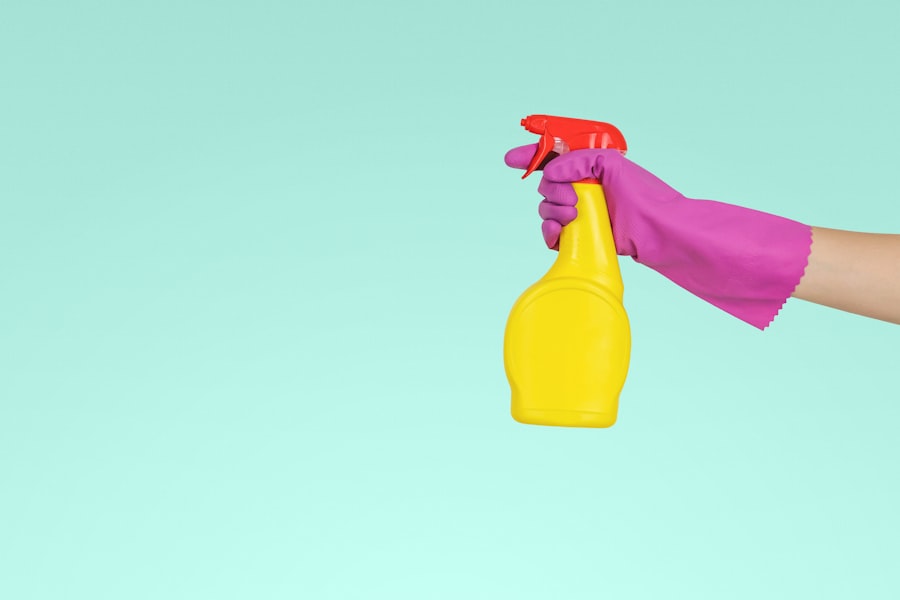Proper nutrition is essential for maintaining good health in any living being, including animals. It is important to provide a well-balanced diet that meets the specific nutritional needs of the animal. This includes a combination of proteins, carbohydrates, fats, vitamins, and minerals.
For example, dogs and cats require a diet that is high in animal-based proteins, while herbivorous animals such as rabbits and guinea pigs need a diet that is high in fiber. It is also important to provide fresh, clean water at all times to ensure proper hydration. In addition to providing the right nutrients, it is important to feed animals the appropriate amount of food.
Overfeeding can lead to obesity and related health issues, while underfeeding can result in malnutrition and other health problems. It is important to follow feeding guidelines provided by veterinarians or pet nutritionists to ensure that animals are receiving the right amount of food for their size, age, and activity level. Finally, it is important to avoid feeding animals human foods that may be toxic to them, such as chocolate, grapes, and onions.
By providing proper nutrition, pet owners can help ensure that their animals maintain good health and live long, happy lives. Proper nutrition is the cornerstone of good health for animals. Just like humans, animals require a balanced diet that provides all the essential nutrients they need to thrive.
This means providing a diet that is appropriate for the species, age, and activity level of the animal. For example, puppies and kittens have different nutritional needs than adult dogs and cats, and active working dogs have different needs than sedentary lap dogs. It is important to choose high-quality commercial pet foods or prepare homemade diets under the guidance of a veterinarian or pet nutritionist to ensure that animals are receiving the right balance of nutrients.
Additionally, it is important to monitor the animal’s body condition and adjust their diet as needed to prevent obesity or malnutrition. By providing proper nutrition, pet owners can help ensure that their animals have the energy and vitality they need to live happy, healthy lives.
Table of Contents
- 1 Clean Living Environment
- 2 Regular Exercise
- 3 Preventative Healthcare
- 4 Monitoring for Signs of Illness
- 5 Biosecurity Measures
- 6 Regular Veterinary Check-ups
- 7 FAQs
- 7.1 What are some general tips for keeping chickens healthy?
- 7.2 What should I feed my chickens to keep them healthy?
- 7.3 How can I ensure my chickens have access to clean water?
- 7.4 What are some common health issues in chickens and how can I prevent them?
- 7.5 How often should I clean my chicken coop to keep my chickens healthy?
- 7.6 Do chickens need regular veterinary check-ups?
Key Takeaways
- Proper nutrition is essential for maintaining good health in animals, providing the necessary nutrients for growth, energy, and overall well-being.
- A clean living environment is crucial for preventing the spread of diseases and parasites, as well as reducing stress in animals.
- Regular exercise is important for keeping animals physically fit and mentally stimulated, contributing to their overall health and happiness.
- Preventative healthcare, such as vaccinations and parasite control, is key to preventing common illnesses and maintaining good health in animals.
- Monitoring for signs of illness, such as changes in behavior or appetite, can help detect health issues early and prevent them from worsening.
- Biosecurity measures, such as quarantining new animals and controlling visitor access, are important for preventing the spread of diseases within animal populations.
- Regular veterinary check-ups are essential for monitoring the overall health of animals, detecting any potential issues, and providing necessary medical care.
Clean Living Environment
Physical Environment
It is important to regularly clean and disinfect animal enclosures to prevent the spread of disease and parasites. This includes removing waste and soiled bedding, cleaning food and water dishes, and regularly washing toys and other accessories. Additionally, it is important to provide proper ventilation and temperature control to ensure that animals are not exposed to extreme heat or cold.
In addition to maintaining a clean physical environment, it is important to provide animals with mental stimulation and social interaction. This can help prevent boredom and reduce stress-related behaviors such as excessive barking or destructive chewing. Providing toys, puzzles, and interactive games can help keep animals mentally engaged, while regular socialization with other animals and humans can help prevent loneliness and anxiety.
Benefits of a Clean Living Environment
By providing a clean and enriching living environment, pet owners can help ensure that their animals are happy and healthy. A clean living environment can help prevent the spread of illness and provide animals with a safe and comfortable place to live.
Regular Exercise

Regular exercise is important for maintaining the physical and mental health of animals. Just like humans, animals need regular physical activity to stay fit and healthy. This can include activities such as walking, running, playing fetch, or participating in agility courses.
Regular exercise can help prevent obesity, improve cardiovascular health, strengthen muscles and bones, and reduce stress and anxiety. It can also provide mental stimulation and prevent boredom, which can lead to destructive behaviors in animals. Providing regular exercise for animals can help ensure that they maintain a healthy weight and live longer, happier lives.
In addition to physical exercise, it is important to provide animals with mental stimulation through activities such as training, puzzle toys, and interactive games. Mental stimulation can help prevent boredom and reduce stress-related behaviors such as excessive barking or destructive chewing. It can also help keep animals mentally sharp as they age.
By providing regular exercise and mental stimulation, pet owners can help ensure that their animals are physically fit and mentally engaged. Regular exercise is essential for maintaining the physical and mental health of animals. Just like humans, animals need regular physical activity to stay fit and healthy.
This can include activities such as walking, running, playing fetch, or participating in agility courses. Regular exercise can help prevent obesity, improve cardiovascular health, strengthen muscles and bones, and reduce stress and anxiety. It can also provide mental stimulation and prevent boredom, which can lead to destructive behaviors in animals.
Providing regular exercise for animals can help ensure that they maintain a healthy weight and live longer, happier lives. In addition to physical exercise, it is important to provide animals with mental stimulation through activities such as training, puzzle toys, and interactive games. Mental stimulation can help prevent boredom and reduce stress-related behaviors such as excessive barking or destructive chewing.
It can also help keep animals mentally sharp as they age. By providing regular exercise and mental stimulation, pet owners can help ensure that their animals are physically fit and mentally engaged.
Preventative Healthcare
Preventative healthcare is essential for keeping animals healthy and preventing illness. This includes regular vaccinations to protect against common diseases such as rabies, distemper, parvovirus, and feline leukemia. It also includes regular deworming to prevent parasites such as roundworms, hookworms, and tapeworms.
Additionally, preventative healthcare includes regular flea and tick prevention to protect against these common pests that can transmit diseases such as Lyme disease and ehrlichiosis. In addition to vaccinations and parasite prevention, preventative healthcare also includes regular wellness exams with a veterinarian. These exams can help detect early signs of illness or disease before they become serious problems.
They also provide an opportunity for pet owners to discuss any concerns they may have about their animal’s health or behavior. By staying up-to-date on preventative healthcare measures, pet owners can help ensure that their animals stay healthy and happy. Preventative healthcare is essential for keeping animals healthy and preventing illness.
This includes regular vaccinations to protect against common diseases such as rabies, distemper, parvovirus, and feline leukemia. It also includes regular deworming to prevent parasites such as roundworms, hookworms, and tapeworms. Additionally, preventative healthcare includes regular flea and tick prevention to protect against these common pests that can transmit diseases such as Lyme disease and ehrlichiosis.
In addition to vaccinations and parasite prevention, preventative healthcare also includes regular wellness exams with a veterinarian. These exams can help detect early signs of illness or disease before they become serious problems. They also provide an opportunity for pet owners to discuss any concerns they may have about their animal’s health or behavior.
By staying up-to-date on preventative healthcare measures, pet owners can help ensure that their animals stay healthy and happy.
Monitoring for Signs of Illness
It is important for pet owners to monitor their animals for signs of illness on a regular basis. This includes observing changes in behavior or appetite, as well as looking for physical signs such as vomiting, diarrhea, coughing, sneezing, or limping. Any changes in an animal’s normal behavior or appearance should be brought to the attention of a veterinarian as soon as possible.
In addition to monitoring for signs of illness at home, it is important to schedule regular wellness exams with a veterinarian. These exams provide an opportunity for a thorough physical examination as well as discussions about any concerns or changes in an animal’s health or behavior. By staying vigilant for signs of illness and seeking prompt veterinary care when needed, pet owners can help ensure that their animals receive timely treatment for any health issues that may arise.
It is important for pet owners to monitor their animals for signs of illness on a regular basis. This includes observing changes in behavior or appetite, as well as looking for physical signs such as vomiting, diarrhea, coughing, sneezing, or limping. Any changes in an animal’s normal behavior or appearance should be brought to the attention of a veterinarian as soon as possible.
In addition to monitoring for signs of illness at home, it is important to schedule regular wellness exams with a veterinarian. These exams provide an opportunity for a thorough physical examination as well as discussions about any concerns or changes in an animal’s health or behavior. By staying vigilant for signs of illness and seeking prompt veterinary care when needed, pet owners can help ensure that their animals receive timely treatment for any health issues that may arise.
Biosecurity Measures

Quarantining and Hygiene Practices
Quarantining new animals before introducing them to existing populations is a vital biosecurity measure. This helps prevent the spread of disease from new animals to existing ones. Practicing good hygiene when handling animals or their waste products is also essential. This includes washing hands regularly, wearing protective clothing, and disinfecting equipment and surfaces.
Preventing Contact and Keeping Facilities Clean
Preventing contact between wild animals and domesticated ones is another important biosecurity measure. This helps prevent the spread of disease from wild animals to domesticated ones. Keeping facilities clean and disinfected is also crucial in preventing the spread of disease-causing organisms such as bacteria or viruses. This includes regularly cleaning animal enclosures, food dishes, water bowls, toys, and other accessories.
Benefits of Good Biosecurity Measures
By practicing good biosecurity measures, pet owners can help prevent the spread of illness among their animals. This not only ensures the health and well-being of animals but also prevents the financial and emotional burden of dealing with disease outbreaks. By taking simple steps to implement biosecurity measures, pet owners can create a safe and healthy environment for their animals.
Regular Veterinary Check-ups
Regular veterinary check-ups are essential for maintaining the health of animals. These check-ups provide an opportunity for a thorough physical examination by a trained professional who can detect early signs of illness or disease before they become serious problems. They also provide an opportunity for vaccinations or other preventative healthcare measures that can protect against common diseases.
In addition to physical exams and preventative healthcare measures, regular veterinary check-ups provide an opportunity for discussions about any concerns or changes in an animal’s health or behavior. This allows pet owners to seek advice from a knowledgeable professional who can provide guidance on how best to care for their animal’s specific needs. Regular veterinary check-ups are essential for maintaining the health of animals.
These check-ups provide an opportunity for a thorough physical examination by a trained professional who can detect early signs of illness or disease before they become serious problems. They also provide an opportunity for vaccinations or other preventative healthcare measures that can protect against common diseases. In addition to physical exams and preventative healthcare measures, regular veterinary check-ups provide an opportunity for discussions about any concerns or changes in an animal’s health or behavior.
This allows pet owners to seek advice from a knowledgeable professional who can provide guidance on how best to care for their animal’s specific needs. In conclusion… Proper nutrition is essential for maintaining good health in any living being including pets; it is important to provide a well-balanced diet that meets the specific nutritional needs of the animal; overfeeding can lead to obesity while underfeeding results in malnutrition; it is important not feed pets human foods that may be toxic; clean living environment is essential; this includes providing a clean shelter; regularly cleaning food dishes; providing proper ventilation; mental stimulation is also important; this prevents boredom; regular exercise is crucial; this prevents obesity; improves cardiovascular health; strengthens muscles; reduces stress; preventative healthcare includes regular vaccinations; deworming; flea & tick prevention; wellness exams; monitoring signs of illness; observing changes in behavior; scheduling regular wellness exams with a veterinarian; biosecurity measures are important; this includes quarantining new pets; practicing good hygiene; keeping facilities clean & disinfected; regular veterinary check-ups are essential; these check-ups provide an opportunity for thorough physical examination by trained professionals who detect early signs of illness before they become serious problems; they also provide an opportunity for vaccinations & discussions about any concerns or changes in an animal’s health or behavior
If you’re looking to keep your chickens healthy, it’s important to provide them with a suitable coop. A-frame chicken coops are a popular choice for many chicken owners, as they offer a simple and effective design. However, it’s important to consider the size of the coop and what kind of coop is best for your chickens. For more information on choosing the right coop for your chickens, check out this article on what kind of coop is best for chickens.
FAQs
What are some general tips for keeping chickens healthy?
Some general tips for keeping chickens healthy include providing a balanced diet, clean water, a clean living environment, regular veterinary check-ups, and proper hygiene practices.
What should I feed my chickens to keep them healthy?
Chickens should be fed a balanced diet that includes a combination of commercial chicken feed, grains, fruits, vegetables, and access to insects and other protein sources. It’s important to provide them with the necessary nutrients for their overall health and egg production.
How can I ensure my chickens have access to clean water?
Chickens should have access to clean, fresh water at all times. Water containers should be regularly cleaned and refilled to prevent the spread of bacteria and disease.
What are some common health issues in chickens and how can I prevent them?
Common health issues in chickens include respiratory infections, parasites, and egg-laying problems. To prevent these issues, it’s important to provide a clean living environment, practice good hygiene, and seek veterinary care when necessary.
How often should I clean my chicken coop to keep my chickens healthy?
The chicken coop should be cleaned regularly to prevent the buildup of bacteria and parasites. This includes removing soiled bedding, cleaning and disinfecting the coop, and ensuring proper ventilation.
Do chickens need regular veterinary check-ups?
Yes, chickens should receive regular veterinary check-ups to monitor their overall health, address any potential health issues, and receive vaccinations if necessary. Regular check-ups can help prevent and detect health problems early on.
Meet Walter, the feathered-friend fanatic of Florida! Nestled in the sunshine state, Walter struts through life with his feathered companions, clucking his way to happiness. With a coop that’s fancier than a five-star hotel, he’s the Don Juan of the chicken world. When he’s not teaching his hens to do the cha-cha, you’ll find him in a heated debate with his prized rooster, Sir Clucks-a-Lot. Walter’s poultry passion is no yolk; he’s the sunny-side-up guy you never knew you needed in your flock of friends!







